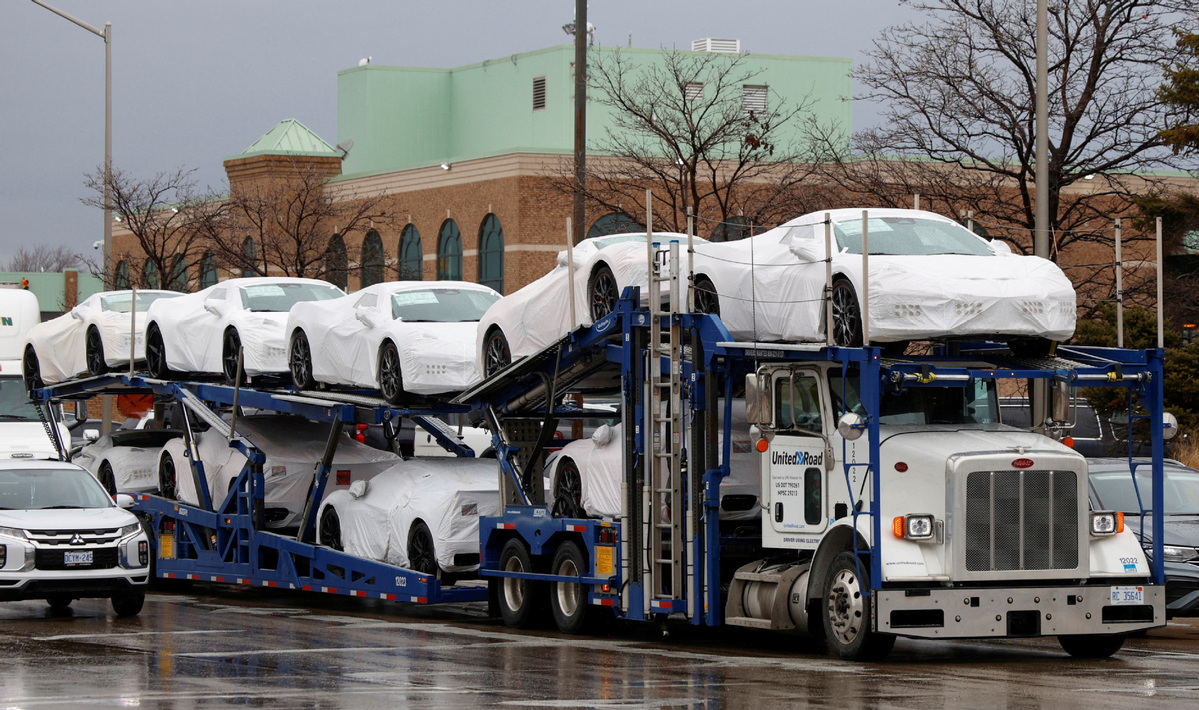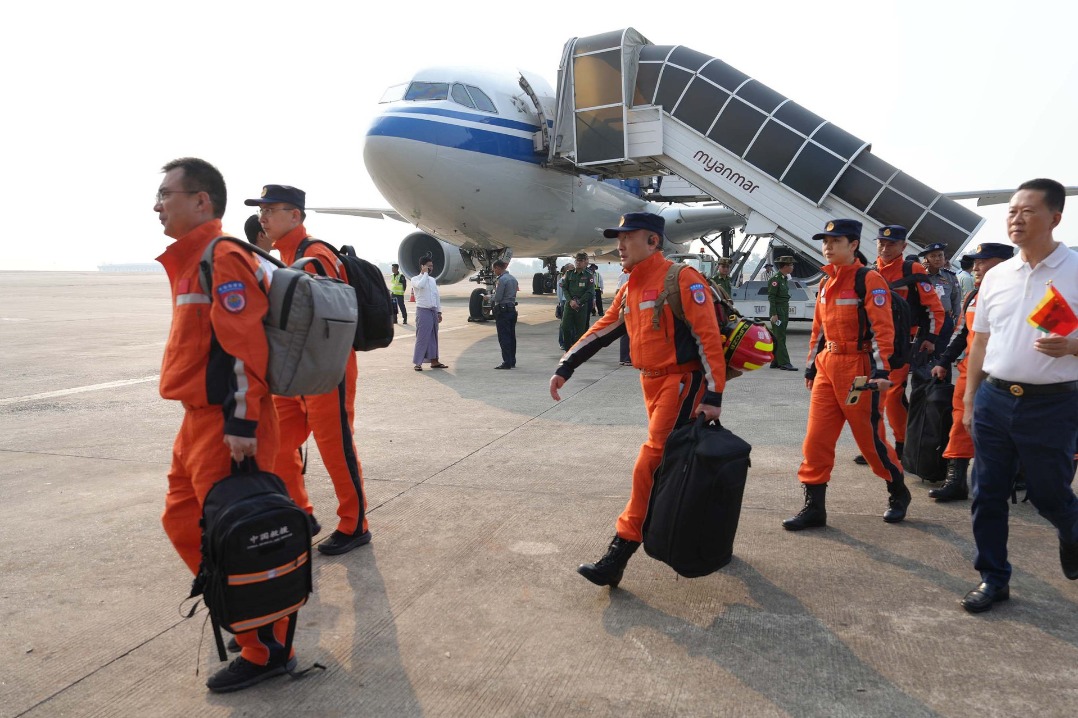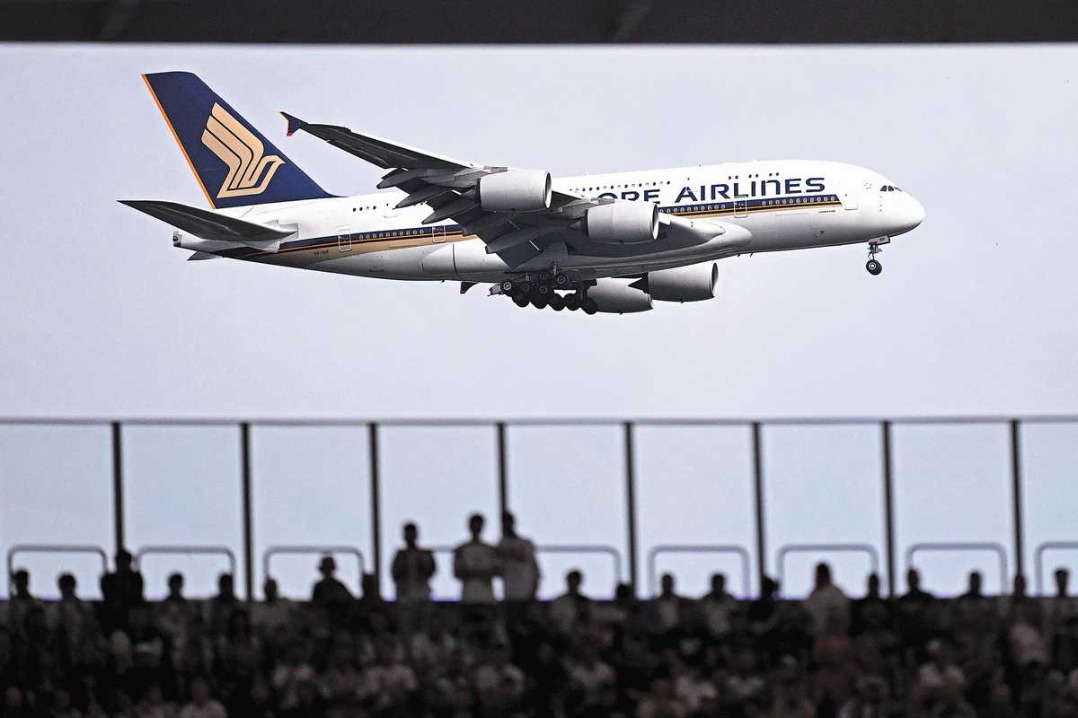Tariff threats strain relations between Canada, US


The close relationship between the United States and Canada has been under severe strain ever since US President Donald Trump imposed sweeping tariffs on Canadian goods and suggested annexing Canada as the US' 51st state. Despite both sides describing Saturday's talks between Trump and Canadian Prime Minister Mark Carney as "very constructive" and "extremely productive", the new frostiness in ties persists.
Trump announced on Wednesday he would target imported vehicles and vehicle parts with a 25 percent tax. This move is likely to prove devastating for Canada's auto industry.
In response, Carney said his country's old relationship with the US "based on deepening integration of our economies and tight security and military cooperation, is over".
Carney has called a snap election for April 28, seeking a strong mandate to counter Trump's aggressive policies.
"We are facing the most significant crisis of our lifetimes due to President Trump's unjustified trade actions and his threats to our sovereignty," Carney declared. Sworn in as prime minister on March 14, he made it clear that his country "will never be part of the United States".
Although the next election was originally scheduled for Oct 20, Carney is capitalizing on a surge in support for his Liberal Party, following Trump's threats and the resignation of former prime minister Justin Trudeau in January.
Trump's 25 percent tariff on Canadian exports took effect on March 4. In retaliation, Canada imposed duties on approximately $20 billion worth of US products. Both nations have since agreed to resume trade negotiations.
The Organization for Economic Co-operation and Development's latest forecast predicts Canada's economy will grow by just 0.7 percent in 2025 and 2026, significantly down from the previously projected 2 percent.
In the face of escalating US pressure, Canada is seeking to diversify its defense partnerships. Carney's first overseas trip took him to Paris and London, where he explored alternatives to US-made military equipment. Canada spends about 80 percent of its defense budget on American weapons.
Canada's Foreign Affairs Minister Melanie Joly confirmed that Canada is in advanced negotiations with European partners regarding a joint defense alliance. Additionally, Canada is strengthening its security ties with Australia through a $4.2 billion over-the-horizon radar project to monitor Arctic threats.
However, analysts noted that Canada's defense industry has limited autonomy. The country lacks an independent aviation sector and a robust military-industrial complex, making a full departure from US defense ties difficult.
Amy Koch, a Republican political strategist, told Al Jazeera that Trump's policies vis-a-vis Canada should be seen as part of a wider push for dominance in the Western hemisphere.
"Tariffs on Canadian and Mexican goods, calls to retake control of the Panama Canal and acquire Greenland, and an executive order renaming the Gulf of Mexico the 'Gulf of America' are all elements of that effort," Koch said.
Peter Navarro, one of the US president's closest advisers, is pushing for the US to remove Canada from the Five Eyes, which also includes the US, Australia, New Zealand and the UK, the Financial Times reported.
The US moves have fueled widespread backlash in Canada. Calls for economic resistance have gained momentum, with Canadians urged to boycott American goods and cancel travel to the US. The cancellations could impact the economy in places such as New York City, where Canadian visitors spent an estimated $600 million in 2024, according to the New York Times.
Public opinion also reflects the growing hostility. A February poll by pollster Leger found that 27 percent of Canadians now consider the US an "enemy" nation, while 30 percent still view it as an ally and another 27 percent see it as neutral.
The strained relations were on show on Feb 16 during the 2025 4 Nations Face-Off hockey championship game between the US and Canada. The Canadian crowd booed the US national anthem, and three fights broke out in the first nine seconds of play.
Xi Guigui, director of a research center for United Nations and sustainable development at Sichuan International Studies University, suggested that Trump's rhetoric about turning Canada into the "51st state" is a strategic pressure tactic.
"Essentially, this approach aims to suppress Canada and push for US-led North American integration," Xi said. "However, such domineering behavior has eroded trust and transformed allies into rivals."
Chen Changning, director of the American Studies Center at Sichuan University, noted the complexity of US-Canada relations.
"Trump's return to the White House has escalated tensions in security and trade, further straining the partnership," he observed.
Former Canadian prime minister Pierre Trudeau once likened living next to the US to "sleeping with an elephant". "No matter how friendly and even-tempered is the beast, one is affected by every twitch and grunt," he said in 1969.
For many Canadians today, those words have never rung more true.
































